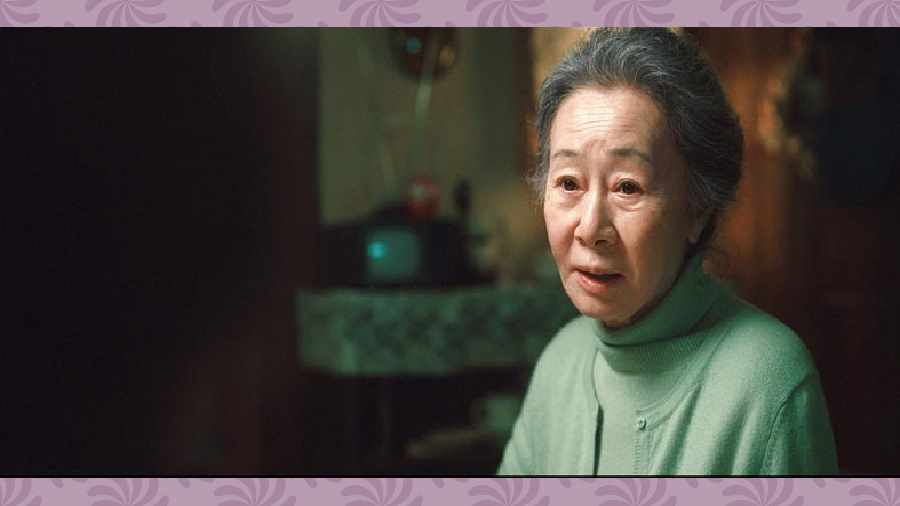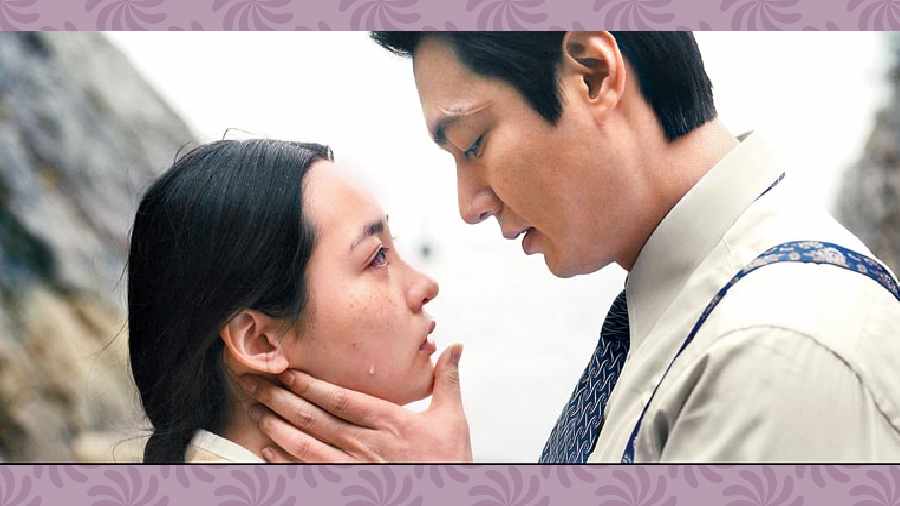In October 1998, the then Japanese Prime Minister Keizo Obuchi offered an unusually forthright apology for Japanese colonial occupation of the Korean peninsula in the early 20th century. Political apologies can be complicated but this one was an exception. Several decades ago, relationships between the two nations had been very chilly because Japan brutally occupied Korea from 1910 until the end of the Second World War in 1945. It is said that over two million Koreans moved to Japan during colonial rule and it was not always by choice. Further, 600,000 chose to stay after the war’s end.
It is a very complex part of history which ties in with one of the best shows to have had hit streaming services. Called Pachinko, the Apple TV+ show is based on the novel by the same name by Manhattan-based author and journalist Min Jin Lee. Stellar casting. Expensive sets. And a story like no other. Unlike other streaming services that want to move at breakneck speed to secure more viewers, Apple TV+ is slowly blossoming into a meaningful streaming option. CODA, which is streaming on the service, is the first streaming film to win the Oscar for Best Picture.
Non-linear narrative
The eight-episode series moves back and forth between two eras. Emperor Hirohito, who ruled Japan for more than six decades, dies in the first episode. The year was 1989 and he was loved by the Japanese people while in South Korea many considered him a symbol of colonisation. The series begins in the 1910s when dark times had set in for Korea. The show then takes place over eight decades.
Without complicating the plot, the main character is Sunja whose younger self is played brilliantly by Minha Kim while the elder version has Oscar-winner (Minari) Yuh-Jung Youn, who is a revelation in her role. Playing a very important part is Lee Minho (Boys Over Flowers) as Koh Hansu, a merchant and fish broker, who regularly visits Busan in South Korea and has his eyes on Sunja. But it’s far more complicated than that as the eight-episode series will prove.
“We live in fast-paced society and at times we lose track of what we have. I hope that people can take a look at the older generation and the universal values that present in the show. They should think about the best path forward,” Lee tells via a translator over a video call late into the night.
Lee should be very happy about how the show has turned out, even though it differs in many ways from the book. The non-linear construction of the plot is winning praise, making the show appear dramatic and at the same time is quite a departure from the book. On the show, themes of birth, displacement, ambition, yearning and much more play out brilliantly, thanks to the narrative structure.
Directors Justin Chon (Blue Bayou, Gook) and Kogonada (After Yang, Columbus) went with a cast of mostly actors of Korean descent while the narrative unfolds in English, Korean and Japanese, taking place in Busan, New York, Osaka and a few other Japanese cities. It would be interesting as to how young Koreans will perceive the show. “They (the older generation) had little chance to think about the future because they were focussed on survival. As for the present generation, they will be really surprised,” says Minha Kim.
“History lead us to where we are and who we are. Youngsters should read history. And there shouldn’t be bitterness and people shouldn’t be embarrassed. Now, the world is getting smaller (and different),” says 74-year-old Yuh-Jung Youn.

Yuh-Jung Youn
Family values
A twist of fate brings Sunja to Japan. There are two men. First is businessman Hansu, a feared man about town. Second is Isak (Steve Sanghyun Noh), an idealistic pastor who sees himself as Sunja’s saviour. Youn says she admires Sunja’s “strength and the determination to survive”. “When she was asked to be the mistress, she said no, knowing she could lead a comfortable life.”
The camera beautifully captures the vast sea separating Korea and Japan, and the highrises of Tokyo, with the movement remaining easy on the eye. The directors even make the show appear sleek with its opening credit sequence in which each of the major actors dances down the aisle of a pachinko (a pinball machine but with automatic pay-off as in a gambling slot machine) parlour to the lively 1967 song, Let’s Live for Today, reminding viewers of the resilience of the family system.
“I would love it if viewers take with them the story of love and family and sacrifice. I would love them to take in the process of surviving and the process of their history. People are not alone. We suffer together,” says Kim. Lee quickly adds, “I think the show is not just about entertaining. It is about relatability. I hope people think about their families watching the show.”
Pachinko comes close on the footsteps of the unprecedented success of Parasite and then Squid Game. At the same time, it’s an adaptation of a novel by an Asian-American author while being brought to the screen by an Asian-American artiste with a cast that’s mostly Asian. At the same time, the show has received a healthy dose of Hollywoodisation in the form of additions to the plot, like the Kanto earthquake of 1923. Yet, overall the show remains digestible.
The grandeur of Pachinko is in many ways a reminder of how a small-screen story can go beyond screen size. It sort of redefines the standard of streaming shows and at the same time reinforces the global reach streaming services can manage if resources are managed right.
When Lee read the story, he thought it was very strong. “I thought it was a very strong story and though it happened a century ago, I can still relate with the story. I think people these days can still feel the sentiments that are there in the drama.”
If not for anything, watch the show for the legendary actress Youn, who is always candid and thankful for where she is in life. “When I first started (in the industry) I didn’t expect to last this long. It was a part-time job for me. When you got married in those days in Korea, it was different. You lose all the mystery. Leading actresses are about mystery. But life never goes according to plan. I got divorced. There’s nothing I can do about it. I was looking for a job. I was grateful more than before (when I had the job). I didn’t appreciate my job when I was 20. Then I became a real actor. I am doing this because it’s all I can do to exist. That’s why I keep doing it,” she says.
Pachinko is the life-altering story that should have been brought to screen much earlier. Each episode begins with a burst of joy, followed by a story that remains with you for the long haul. It’s a brilliant tribute to the fortitude of survivors that’s not often read about outside Korea and Japan. Like Lee says, “We now lead a much better life and take things for granted. If they (the people who suffered) see us, it will come as a surprise for them.”
Coming up…

Joel Edgerton
Apple TV+ has landed Dark Matter, a new nine-episode series based on the blockbuster book by Blake Crouch. Starring Joel Edgerton, who also serves as executive producer, the series will be written and showrun by Crouch.
Considered one of the best sci-fi novels of the decade, Dark Matter is a story about the road not taken. The series will follow Jason Dessen, (played by Edgerton) a physicist, professor, and family man who, one night while walking home on the streets of Chicago, is abducted into an alternate version of his life. Wonder quickly turns to nightmare when he tries to return to his reality amid the multiverse of lives he could have lived.










